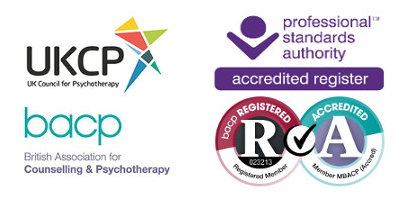Cover Story Extracted from PINK PAPER 24 September 2004
As pupils get back to their studies, Simon Swift finds out why a former student has set up a group for gay boarding school survivors.
Boarding schools are as famous for their tales of gay sex as they are for their formidable academic reputation. But the belief that the posh kids are all enjoying wild sex-lives blinds people to the crippling emotional problems that pupils are often left with.
Marcus Gottlieb, a former boarder at Eton in the 70s, is now a psychologist. He offers support for gay boarding school “survivors” and claims that ex-students are still suffering from hiding their sexuality during their youth. “I remember before going to Eton in 1971, reading an ex-housemaster’s book about school life, which described homosexuality as ‘almost always a phase and nothing for parents to worry about’,” he says. “When I got there, my housemaster’s rumoured attitude was: ‘I don’t mind mutual masturbation but I draw the line at buggery’.”
“In my schooldays the word ‘gay’ wasn’t used as an insult – instead the term ‘perv’ was used. That says it all really” He adds becoming a completely different person is a way of life for some gay students. “[At boarding school] it’s so much more important to pass yourself off as ‘normal’ – as one of the boys or girls – and not to let anyone suspect your gayness. There’s really no outlet.”
Gottlieb is running one of the first series of workshops in London especially for gay men who have been ex-boarders.
He claims many have experienced difficulties when they leave for life outside the school walls. “There is an overriding lack of privacy at boarding school, an absence of personal space and boundaries that other children or teenagers take for granted. “You are always subject to intrusion. So you’re very alert to how others are behaving,” he says. “Your actual impulses, needs, desires, preferences about anything – what you eat, how you exercise your body, or how you express your sexuality – are experienced as a nuisance or simply irrelevant.”
Gottlieb claims that some of the gay ex-boarders he has dealt with have experienced debilitating problems such as clinical depression, eating disorders and alcoholism.
Although some are often successful in their career, they discover relationships aren’t working and friendships are often superficial. He says many are in their 30s before they realise something is missing in their lives. “We all have strategies for surviving at boarding school, rigidly conforming, acting tough, evasiveness, humour,” he recalls.
“In my schooldays the word ‘gay’ wasn’t used as an insult – instead the term ‘perv’ was used. That says it all really. “My own experience was of bursting out [of the closet] pretty soon after leaving, but the guilt and oppression has left a deep scar.”
One ex-boarder said: “It’s like an extra suit of armour you have to wear in that, to an extent, you’ve already adapted your personality to fit and keeping a handle on your gay feelings is just another thing to worry about. “University is a different world but I still felt like I couldn’t come out still – which is a shame because that’s your opportunity to have fun.”
Nick Duffel set up Boarding School Survivors in 1990 – a national organisation which helps troubled ex-boarders make sense of their experiences. His book, The Making of Them, illustrates the effects boarding can have on young people. The situation for gays and lesbians is especially complex. “They [gay men] have difficulty with relationships becausethey have become closed people at boarding school but this is also reinforced by the shame and secrecy, until very recently, that were a big feature of being gay,” he says.
Duffel has identified a condition called Strict Survival personality in some boarders, which involves staying out of trouble and being very guarded. “You suffer many of the things that people in prison suffer and yet it is a privilege,” he adds.
In his research Duffel has heard some horrific stories about anti-gay bullying in boarding schools. “Using gayness as a term of abuse is not just a boarding school phenomenon but there is an absolute fear of being thought of as gay in such an institution.”
Boarding schools have a real hot-house effect where pupils are sexually impatient and experiment with other boys and girl “In fact if you get an attractive boy that turns the other boys on they can pay a heavy price and become stigmatised as gay for arousing such feelings in other pupils. When I was at school this did happen to another boy and he killed himself as a result because there is a tremendous amount of scapegoating, particularly around puberty. The culture is eventually one of denying, suppressing and sublimating into sports.” Even more confusing is the mythology that gay experimentation is a regular practice at boarding schools. Duffel says staff attitudes towards sex are often the problem. “These boarding schools are often single gender and have a real hot-house effect where pupils are sexually impatient and experiment with other boys and girls – and yet experimenting with your body is taboo in the eyes of staff.”
Gottlieb agrees: “It depends on what school you go to. What’s acceptable varies but in most cases whatever goes on is pretty much behind closed doors.” Most feel they are doing something wrong and, if anyone finds out about it, they will be outcasts.
“The fact is that when I was at school expulsions did happen and if you were caught having any sort of sex you were liable to be expelled.” There’s no easy solution and gay organisation School’s Out admit that boarding school is not an area they deal with at all. Gottlieb says that there are forward thinking institutions but unsurprisingly they are not in this country.
“Nowadays some of the leading American private schools, such as Andover and Concord, permit gay faculty house parents to live together so that pupils have a role model of a normal, loving adult gay relationship,” he says. “For gay students it is going to be very important for them to see gay faculty members able to live a normal life. The presence of gay couples with solid relationships supports those who are at a vulnerable period in life.”
The image of boarding school in books such as Tom Brown’s Schooldays, Mallory Towers and even in the five Harry Potter books is one of intense camaraderie and freedom to grow up. The reality for some remains surprisingly different. Gottlieb explains: “A writer I was at school with said ‘boarding schools are in the country.
You can play football and cricket and make huts in the woods. But what you cannot do is love. You cannot love your parents because it hurts so much – and you cannot love your fellow pupils because there is an overriding taboo against any hint of homosexuality. So after a while you just get out of the habit of loving – getting back into the habit can be a very difficult task’. “I just find the problems are multiplied if you are gay, because the taboo against gayness is usually so very strong, and what you have to hide or deny yourself is so much more.”



